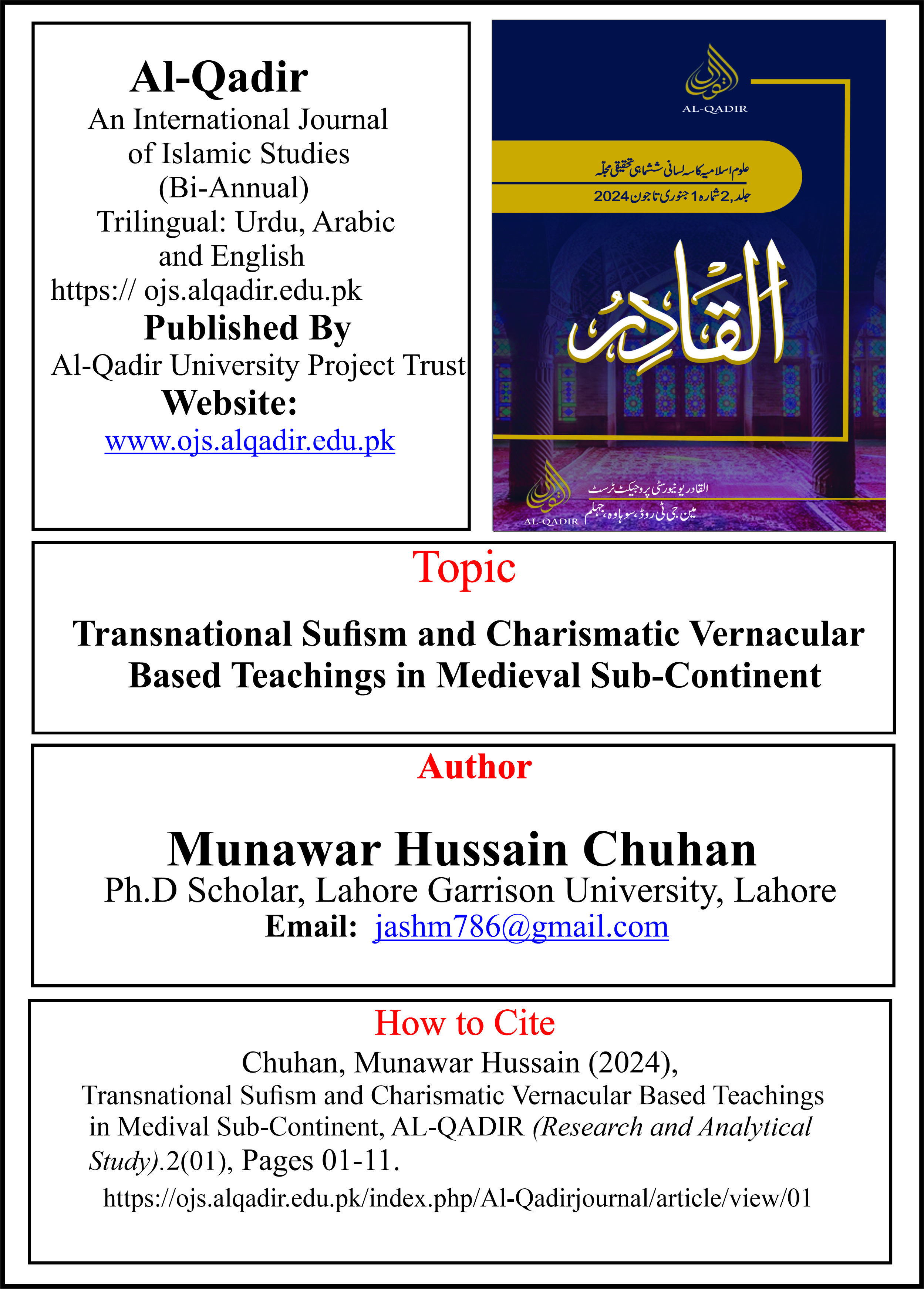Transnational Sufism and Charismatic Vernacular Based Teachings in Medieval Sub-Continent
Munawar Hussain Chuhan
Keywords:
Tasawwuf, Sufi, Vernacularism, Sub-continent, Linguistic hegemony, Dialects, etc.Abstract
Tasawwuf or Sufism is the name known as mysticism in the teachings of Islam. The term Tasawwuf comprises of philosophy as well as systematic proceedings that is pursued for spiritual union between man and God. The individuals who practice Tasawwuf are called Sufis or Saints and Mutasawwif, those individuals who seek to be Sufis.
Tasawwuf is a spiritual and saint feature of Islam. The foundation of which consist of six main vital beliefs or principles, the first and foremost is the believe in the existence and loneliness of Allah, the second is the faith on Prophethood, thirdly the believe on the day of resurrection, fourthly is the believe in the existence of Angles, fifth one is the believe about good and evil in Islam and the last one is the God’s destiny. The roots of Tasawwuf lies with the life and character of the Prophet Muhammad (peace and blessings may be upon him), who is the paragon leader for the entire groups of Sufism including Spiritualists, Mystics, Sufis, Faqirs, Darwishs, Pirs and Rishis. The disciples of these groups devoted their lives to gain the comprehensive knowledge of “Tariqa’t” and “Haqiqt” in the light of the Qur’ān (due to its universal Afaqi tone) and Sunnah of the Prophet for achieving the actual aspiration of Islam.
Key Words: Tasawwuf, Sufi, Vernacularism, Sub-continent, Linguistic hegemony, Dialects, etc.





